#second is sasha took like 150 layers
Text


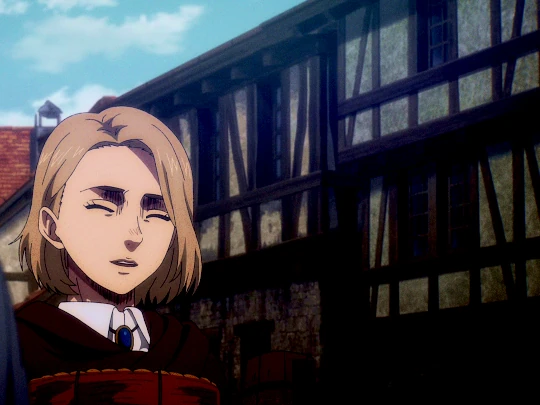

pretty girls buy annie pastries
ATTACK ON TITAN #16.5B and #83, prompted by this @distortedclouds ask
+ bonus sasha being the only observant member of the 104th ⤵
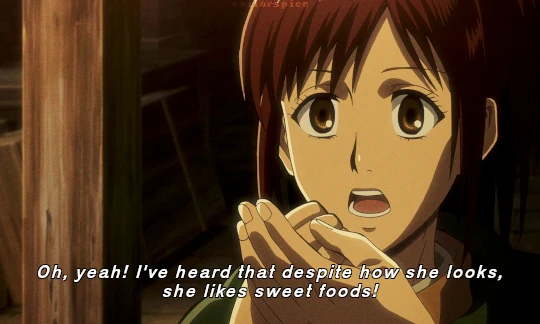
#i have sets for each of these scenes in 5:3 ratio further down the queue bc i don't wanna be annoyingggg#attack on titan#shingeki no kyojin#aotgif#hitchanniegif#hitch dreyse#carly stratmann#anigif#sasha braus#annie leonhart#annie leonhardt#hitchannie#♅#fyanimegifs#dailyanime#animeedit#anisource#dailyanimatedgifs#animangahive#wit studio#mappa#aot lost girls#attack on titan lost girls#attack on titan ova#first reason not to subtitle gifs is translation and provincialism#second is sasha took like 150 layers#animangagirls#animangaladies
93 notes
·
View notes
Text
Best of 2018
I watch a lot of films.
For close to five years now, I’ve been watching somewhere in the region of 100-150 new releases per year. At some point along the line, I started to keep lists of those films, then started to rank the movies on those lists, and eventually got into the habit of compiling end of year lists.
I shared these lists (and discussed them at great length in podcast form) in 2016 and 2017, and I wanted to do the same for 2018. With the Leftover Popcorn Podcast currently on an extended hiatus, that brought me to the post you’re reading right now.
Due to the quirks of global release schedules, the timing of these posts is always a little tricky. I’ve made a habit of finalising my lists just before the Oscars on an annual basis, as that generally affords the extra time required for many of the year’s most interesting films to make their way to me in Ireland.
As such, this list is comprised of my 20 favourite films that received either (a) a U.S. release in the Academy’s eligibility window for the 91st Academy Awards or (b) extremely belated releases in the UK and Ireland following late 2017 releases stateside.
Only time will reveal if 2018 was a particularly strong or interesting year for film, but I know it at least offered plenty of films that have stuck with me long after the end credits finished rolling. The year was filled with ideas, moments, shots, set-pieces and technical achievements that amazed and resonated with me in a wide variety of ways. Many of those highlights can be found in the 20 films below.
Before getting to the list, I have some honourable mentions. In no particular order, they include: Wildlife, The Favourite, Crazy Rich Asians, Hereditary, A Quiet Place, Three Identical Strangers, Beast, Shirkers, Mission: Impossible - Fallout, The Old Man and the Gun, Won’t You Be My Neighbor?, BlacKkKlansman.
20. A Star is Born - (Bradley Cooper)

The first hour of A Star is Born is as good as anything released this year and, as such, it’s by no means a criticism to say it falls off somewhat beyond that point. Still, Bradley Cooper’s directorial debut contains multiple moments that induce goosebumps. It’s not subtle by any means, but there have been very few films over the past decade that have managed to capture emotional extremes in such a truly cinematic fashion. Lady Gaga is sensational, Sam Elliott is a scene-stealer, and in the form of Cooper’s dog, Charlie*, a star is well and truly born
*In a year of fantastic canine performances, I think Charlie pips out Borras (Roma), Boris (Leave No Trace), Olivia (Widows) and Joy (Dogman) to be the best of the many good dogs.
19. Lean On Pete - (Andrew Haigh)
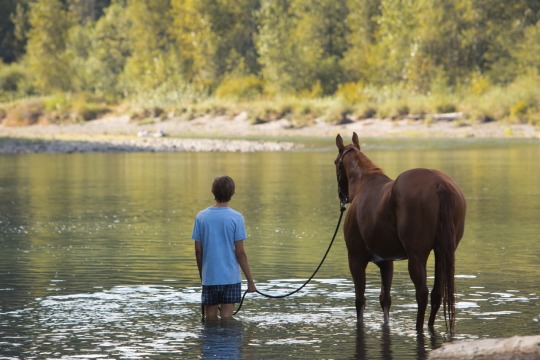
Andrew Haigh’s third feature sees the British filmmaker’s focus shift to the sumptuous expanse of rural middle America. In this touching story of a teenage boy and his attempts to save the eponymous also-ran racehorse, a delicate handle on the narrative complements stunning visuals to produce what should be the contradictory notion of an intimate epic.
It’s impossible not to fall for Charlie Plummer’s protagonist in the same fashion he has grown to love Lean On Pete, as the film’s central relationship reveals both boy and horse have equally been dealt a raw deal by their circumstances.
18. Happy New Year, Colin Burstead - (Ben Wheatley)
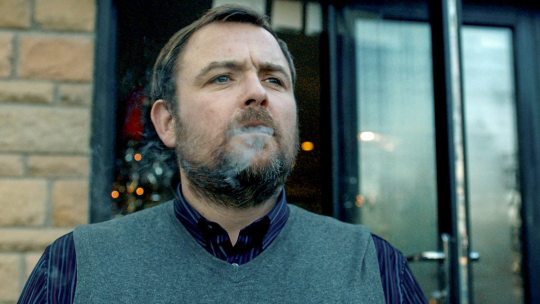
Ben Wheatley has emerged as an incredibly interesting and distinctive filmmaker over the past ten years, and that sense is only further heightened with the contained terror of the family gathering he portrays in Happy New Year, Colin Burstead. As an ensemble piece which takes place on the smallest of scales compared to High Rise and Free Fire, Wheatley’s latest was always going to live and die by its writing and acting.
Unsurprisingly, both are fantastic in a film that provides equal measures of comedy and unbearable discomfort for the audience. As an added bonus, it also includes easily the best end credits sequence of the year.
17. The Rider - (Chloe Zhao)
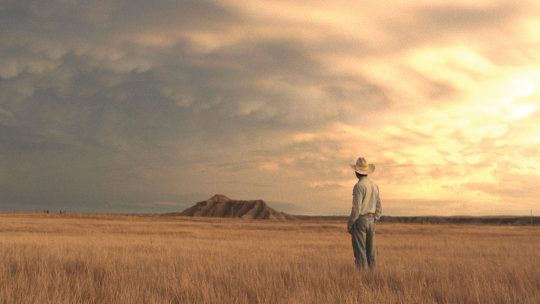
Chloe Zhao’s poetic, contemporary Western packs an abundance of heart-wrenching moments into a film that would stand as an extraordinary achievement even if it wasn’t for its real-life roots. As it is, this is more than just a film.
Although a slightly altered re-telling, the story of the Jandreau family and those who make up their social circle is brought to the screen by the real life figures in question. Zhao uses South Dakota’s largely untouched natural beauty as the canvas for this tale of struggle, and the search for purpose that unfolds from there isn’t easily forgotten.
16. You Were Never Really Here (Lynne Ramsay)
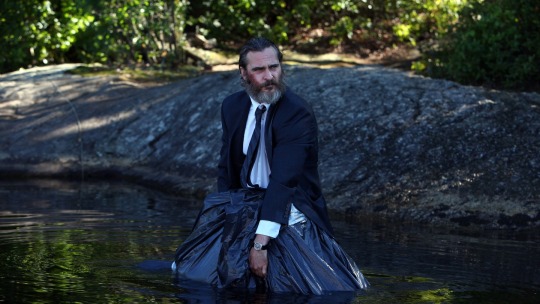
I’d be lying if I said that I liked You Were Never Really Here, which makes it something of a black sheep on a list of films that I otherwise loved across the course of the last 12 months. Some films aren’t supposed to be loved, though, and as Lynne Ramsay’s Taxi Driver-esque fable continues to rattle around my brain all these months later, I’ve come to appreciate it immensely.
This is a deeply unsettling film, but considering the subject matter, that’s exactly what it should be. Ramsay has delivered a film that showcases her masterful control of a very specific mood, and boosted by a stellar performance from Joaquin Phoenix, and Jonny Greenwood’s jolting score, it equated to one of the most memorable movies of the year.
15. Columbus - (Kogonada)
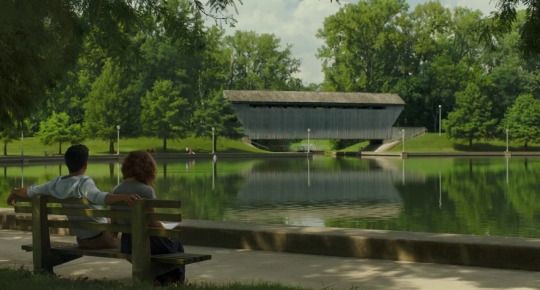
Swathes of cinephiles worldwide were already familiar with Kogonada’s cinematic tastes and sensibilities, thanks to his phenomenal video essays, but that didn’t make his feature directorial debut any less intriguing. In Columbus, Kogonada produced a film as considered as the architecture its characters swoon over.
There’s a stillness and a quiet to the film’s style and story structure, yet that doesn’t equate to a lack of heart or character depth. Haley Lu Richardson and John Cho’s sensational performances anchor the stunning visuals, ensuring their director’s own visual architecture never becomes something prosaic enough to overlook or simply pass by. This is close to as confident and assured as debut films can be.
14. Isle of Dogs - (Wes Anderson)

There’s no getting away from Wes Anderson’s particular tastes, tendencies and flourishes at this point in his career, and as a result, his work remains divisive. Having said that, as Anderson demonstrated in Fantastic Mr. Fox, animation offers an ideal medium for his ever exacting frame and the detail that populates his films. The result in this case is a visually stunning film with a wide range of charms, and something that’s undeniably its own thing in spite of the overt references to Akira Kurosawa and other Asian masters.
Beyond all of its artifice, Isle of Dogs possesses the kind of heart that critics often mourn the absence of in Anderson’s cinema. Anderson’s usual troupe of contributors also provide a fantastic voice cast, with the performances of Brian Cranston, Edward Norton, Bob Balaban, Bill Murray and Jeff Goldblum particularly lively as the film’s leading canines.
13. The Zen Diaries of Garry Shandling - (Judd Apatow)

Documentary portraits of famous figures don’t get much more complete or, indeed, interesting as Judd Apatow’s four-and-a-half hour love letter to the late Garry Shandling. Make no mistake, Apatow’s admiration for and closeness to his subject’s work is clearly evident throughout the film.
In spite of that, the film also manages to offer a look behind the curtain into Shandling’s personal life, and offer up an account of the toll that comedy and television can ultimately take on an individual. The film aligns itself with Shandling’s own clearly reflective instincts, and offers up a measured tribute which gives way to both laughs and tears.
12. The Miseducation of Cameron Post - (Desiree Akhavan)
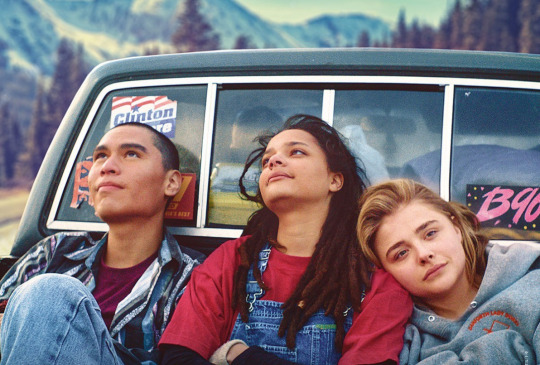
Desiree Akhavan’s second feature offers up a beautifully efficient and affecting exploration of burgeoning sexuality, and the struggles of wider society in coming to terms with that journey of sexual identity. In a year when multiple films took on a similar shape in exploring the archaic notion of gay conversion therapy centres (and on a very different subject but with a frequently similar shape, the restrictive setting of rehab facilities for addicted youth), Akhavan’s film is directed with a grace and subtlety that elevates it far beyond its contemporaries.
Chloe Grace Moretz and Sasha Lane enhance their deserved reputations as young, emerging superstars in a film that’s incredibly well-written, yet avoids the urge to rely solely on lengthy, overacted soliloquies. Instead, this is cinema as it should be. Trusting in the visual nature of the medium, Akhavan’s film is filled with lingering glances and shots, all of which reveal something about the characters and provoke further contemplation on the movie’s ever-important subject matter.
11. Widows - (Steve McQueen)

Steve McQueen’s background as a Turner Prize winning artist translated to a great sense of precision in his first three films. All three of those features, in some form or another, explored what happens when physicality is pushed to its limits, yet in Widows that same theme took on an even grittier quality when married with the conventions of heist films. A move into genre was undeniably a bold step for a filmmaker of McQueen’s style and growing reputation, but then again when he’s capable of playing with generic norms as impressively as he does in this case, it would have been a waste not to explore those possibilities.
Widows stands as a rich text layered with thoughtful assertions on class, race and gender roles, but that doesn’t detract from this story’s potential as pure entertainment either. With one of the casts of the year, the performances are exceptional across the board -- although Daniel Kaluuya’s work still stands out as one of the very best supporting turns of 2018 -- while McQueen’s inherent creativity is on display for all to see as he transforms a brief and simple car journey into one of the year’s most impressive, insightful and memorable shots.
10. Shoplifters - (Hirokazu Kore-eda)

Hirokazu Kore-eda’s tale of unconventional family on the social margins of Tokyo contains all of the trappings and warmth of Ozu’s best work, yet accompanies it with a distinctly modern and sharp edge that increases both its relevance and resonance. Deeply affecting throughout, Shoplifters highlights the often absurd nature of self-placed social constructs and norms, as just one element of a story that’s already wildly compelling, touching and urgent on its surface.
The question of nature versus nurture is very much alive and at work in Kore-eda’s film, but in a nuanced fashion that is perhaps even more interested in how society and class serve, and fail to serve, certain demographics as a whole. What’s best for us, and what can ultimately be most damaging, may be impossible to pinpoint until it’s often too late, and Kore-eda’s film is only too happy to conclude with that unknown sweeping over the audience.
9. First Man - (Damien Chazelle)
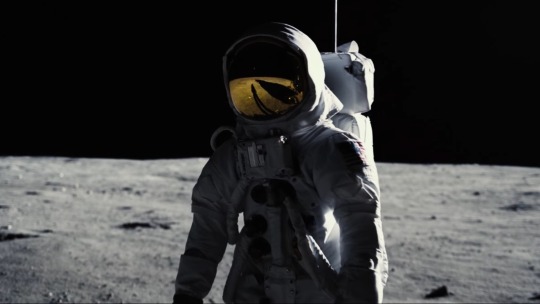
The very same elements that have led to much of the criticism of Damien Chazelle’s La La Land follow-up, will almost certainly prove to be the same reasons it will be afforded much deserved respect and acclaim in time. A very literal nuts and bolts re-telling of mankind’s greatest achievement, First Man is not all that interested in back-slapping or myth-building. It might be easier for many to imagine Neil Armstrong as an exuberant and deeply satisfied man, but his life was more complicated than that, and as such Ryan Gosling’s much-discussed, muted portrayal likely hit on the appropriate tone. Likewise, it would be nice to preserve a fairy tale image of NASA’s untouchable geniuses, but the film and the real life story is all the more interesting for wallowing in the toil, and incredible sacrifices of life, that were a part of man’s journey to the moon.
Having persevered through the quiet, rooted inner-workings and heartbreak that built up to the moon landing, Chazelle treats the audience to arguably the most spectacular moon sequence ever captured on film. The film ends having gifted a sense of wonder for Armstrong and his colleagues’ achievements, but understands the endless failures were just as central to that singular moment. Unlike much of Chazelle’s previous work, this film is not prepared to merely bow down to a narrative of genius.
8. Private Life - (Tamara Jenkins)
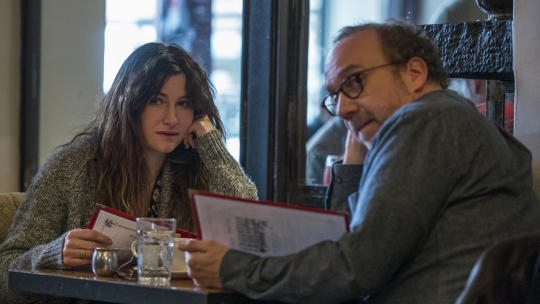
A masterclass in performance and writing from start to finish, Tamara Jenkins’ long overdue return to directing balances divergent tones throughout in a film that is jam-packed with humanity. Telling the story of a couple desperately trying everything within their power to have a child, Jenkins’ film runs through the full gamut of emotions, although it’s more than comfortable in spending prolonged spells on the extremes of uproariously hilarious and heartbreakingly crushing.
Kathryn Hahn and Paul Giamatti anchor the drama with great warmth and a genuinely believable love, while the supporting performances on the margins jump off the screen to provide no doubt as to the authenticity of this world. Private Life is the kind of intelligent and instantly relatable every day drama that rarely makes its way to the big screen any more. It’s also perhaps the strongest evidence in a long time for why cinema should be eager for these stories not to be consigned to the realm of TV drama.
7. Burning - (Lee Chang-dong)
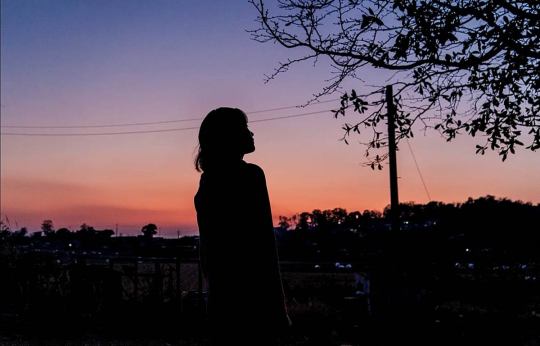
Burning is a mystery in every sense of the word. As a result, it arguably offers the purest dose of suspense that’s been seen on the big screen in quite some time. A sense of unease arises early in the film and only becomes more and more smothering as the action progresses. The lines are entirely blurred between the innocuous and ominous, and even by the film’s dramatic conclusion, for many they’ll remain equally unresolved.
In part, that’s the magic of Burning. It’s a film that not only drags the audience along with it on its journey, but displays a remarkable sense of confidence and control in doing so. The three leading performances in the film are spectacular, but Steven Yeun, in particular, is a revelation. Yeun’s Ben may be an incredibly sinister and manipulative villain, but it’s not a stretch to imagine his Gatsby-like figure being exactly who he presents himself as too. The film must be considered through the prism of the literary aspirations of its protagonist, Jong-su, and that creates valid suspicion. Regardless, Burning is an exquisitely crafted psychological drama and examination of social status along the Korean border, with equally stunning visuals to match.
6. Cold War - (Pawel Pawlikowski)

Inspired by his own parents’ love story, Pawel Pawlikowski took the intimate framing and crisp black and white of his Academy Award winning Ida, and applied it beautifully to a sweeping, European romance. Such is the power of cinema that Cold War feels truly epic. That’s all the more impressive considering it’s a deeply personal story captured in close quarters, which also zips in at a notably punchy 85-minute run time.
Combined with Lukasz Zal’s phenomenal cinematography, it’s clear that Pawlikowski has crafted a winning style. Still, the story is essential in providing the substance and, in this case, it’s thoroughly engrossing. Joanna Kulig is truly magnetic as the single-minded and enigmatic Zula, while Tomasz Kot carries himself with the effortless charisma and dignity of the archetypal, classic leading man as he embodies Wiktor. Every frame in the film would look at home in an art gallery, and yet Cold War carries memorable moments of substance beyond its aesthetic pleasures. Just as important to mention is the fact I never knew I needed Eastern European folk music in my life, and then this film’s enchanting songs took up permanent residence in my head.
5. Roma - (Alfonso Cuaron)

A true cinematic master, Alfonso Cuaron combined the bracing humanity of Y Tu Mamá También with the technical mastery of Children of Men to produce the most personal film of his career. In that regard, Roma may well live on to be viewed as Cuaron’s truly definitive work. This film captures the spirit that infuses his wider filmography with so much exuberance and life, while telling a story that has so much resonance in its own right.
A tribute to the childhood maid that raised him, Roma shines a light on the struggles of indigenous Mexican people, and the class and cultural divides that have long existed in Mexico City. Driven by an outstanding, naturalistic performance from first-time actress Yalitza Aparicio as Cleo, the film’s deliberate pacing provides the audience with the truest sense of the world in which its set, and the routines of its protagonist. Of course, it does this in a fashion which few other living filmmakers could dream of replicating. Cuaron’s camerawork is out of this world, particularly in the film’s two main set pieces, but just as relevant to the discussion that surrounded its Netflix release was the remarkably immersive sound design. I was lucky enough to catch Roma on the big screen, and there’s no doubt that it made the film an even greater cinematic spectacle. Having said that, the emotion at the heart of the film is deeply affecting, and it will therefore connect on screens of all shapes and sizes for decades to come.
4. If Beale Street Could Talk - (Barry Jenkins)
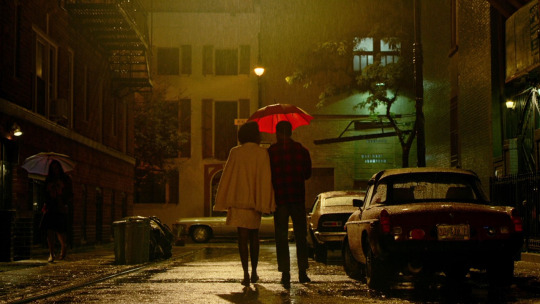
If Beale Street Could Talk is not only Barry Jenkins’ first film since his Oscar win for Moonlight, but it’s also the first English-language adaptation of a James Baldwin work. Combined, those elements make for an enormous weight of pressure and expectation, and yet Jenkins was more than up to the challenge of delivering beyond even the loftiest of expectations. Much like Moonlight, this is a perfect match of filmmaker and subject matter. Jenkins is undeniably ascending toward the status of being the premier cinematic chronicler of the African American experience. It’s particularly vital for that specific lens to his work to never be overlooked, either, as it gets right to the heart of the essential truths of his films.
Still, it all derives from a deeper understanding of emotion, society and relationships that ensure Jenkins’ cinema is also imbued with a layer of universality. Jenkins is a filmmaker of great empathy, and his collaborations with cinematographer James Laxton have seen him develop into the modern master of the close-up. Faces have rarely looked as rich and expressive as they do under Jenkins’ gaze, and it’s likely no coincidence that actors seem to find another gear for their performances under his watch. For this film, those elements all combine for a story rich with romance and tragedy, and one that’s sadly as relevant today as it was when Baldwin published the novel in 1974. To cap things off, Nicholas Britell’s score finds the most extraordinary balance between soaring romance and Herrmann-esque dread to emerge as cinema’s best soundtrack of the year.
3. Leave No Trace - (Debra Granik)
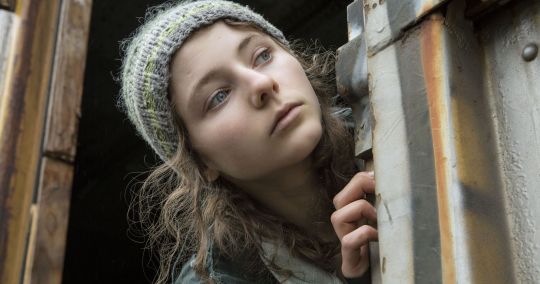
Debra Granik returns with her first feature since Winter’s Bone effectively launched Jennifer Lawrence’s career, and it was undoubtedly worth the wait. A quiet film with an ultimately pointed and heartbreaking message, Leave No Trace affords the leafy green environs of the Pacific Northwest the kind of breathing space society seems so unwilling to offer the film’s father and daughter duo.
Played by Ben Foster and Thomasin McKenzie respectively, there’s an arresting resilience and tenderness to the central relationship of Will and Tom. Living in public parks and deserted woodlands, Will and Tom don’t conform to the cut and dry definitions of family and home that the authorities around them are intent on enforcing upon them. Part of the magic of Granik’s film comes in the way it gradually channels the viewer to see things from their perspective. Why can’t contented people, doing no harm to others, be allowed to live in a manner of their choosing? Of course, the conversation is much more complex of that, and so, as Granik’s film ultimately reveals, is the telling of it in this case. On the whole, Leave No Trace is a truly mesmeric meditation on the impact of trauma, familial love and societal norms. Buoyed by McKenzie, who delivers one of the most astonishing performances of the year, it’s not a film that can be easily forgotten.
2. Minding the Gap - (Bing Liu)

It’s become unsurprisingly fashionable for American cinema to attempt to explain the ascendance of Trump, and the country’s wider social challenges, with on the nose films that offer minimal real depth or insight. Minding the Gap doesn’t fall into those same traps, though, largely because it seems like it never originally had aspirations to be as profound as it ultimately proved to be. As it turns out, simply charting the lives of a group of skateboarding friends over an extended period of time provides a fascinating look into the struggles of youth, and the baggage of history and circumstance, in small, forgotten towns.
Directed by Bing Liu, one of the aforementioned skateboarders, Minding the Gap’s subject matter ultimately proves to be remarkably complex and far-reaching for a 93-minute documentary set on the streets and in the homes of Rockford, Illinois. The young men’s interconnected lives ultimately give way to a shared history of previously undiscussed struggles. Among the young men’s commonalities are exposure to domestic abuse, experiences shaped by race, immense financial struggle, the confusion of modern masculinity, and, of course, a passion for skateboarding. There’s certainly some optimism to be found here, but there’s also an overwhelming sense of sadness for how these young men have been shaped by past acts and histories that were always beyond their control. If you wanted to even try to explain America in 2019, understanding those challenges would be essential. In truth, though, the same difficulties could be applied, and used as explainers for social issues, across the wider Western world. This is a deeply human story and, I’d argue, the year’s most touching film.
1. First Reformed - (Paul Schrader)
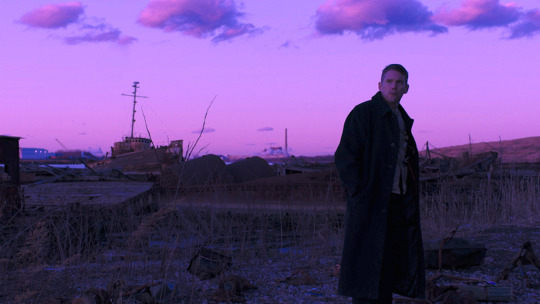
I’m not sure how many people were expecting it, but at 72-years-old, Paul Schrader remains one of cinema’s most vital and striking voices. With a deep well of cinematic knowledge to draw from, First Reformed sees Schrader borrow liberally from many of the form’s great masters, while still crafting an incredible story that is undeniably spoken in his own abrasive tone. Bergman’s Winter Light, Dreyer’s Ordet and Bresson’s Diary of a Country Priest are blatantly obvious inspirations, but the voice of Taxi Driver’s Travis Bickle, Schrader’s own most famous creation, is equally present in the character of Reverend Ernst Toller.
Toller is played masterfully by Ethan Hawke in the best performance of what’s already been a rich and fascinating career. A clearly measured and reasonable man, Toller’s journey ultimately brings him to breaking point as those around him ignore his message in the same way that he attempts to turn a blind eye to his ailing health. Schrader’s writing tackles global warming, and the prospect of impending doom that accompanies it, in the kind of blunt and unflinching terms that should now be unavoidable but tragically remains all too rare. By the same token, as Toller begs for consideration of whether God can forgive for the damage done to the earth, his preachings fall on the deaf ears of an immensely selfish world. In Schrader’s mind, there’s no question that drastic times call for drastic measures.
Even with such an urgent message, a fantastic script, and a generational lead performance, First Reformed wouldn’t be as great as it is without its stunning array of visuals. The film’s visual treats range from extreme close-ups that make a map out of Hawke’s wrinkled forehead, to the electric and lustrous pink of Toller’s heartburn medicine as it mixes with his whiskey, and to the vivid anger of the early morning sky. Quite simply, it’s a feast for the eyes, a jolt for the mind, and an assault on the soul.
#film#movies#cinema#oscars#first reformed#minding the gap#leave no trace#if beale street could talk#roma#cold war#burning#first man#shoplifters#private life#widows#the miseducation of cameron post#the zen diaries of garry shandling#isle of dogs#columbus#you were never really here#the rider#lean on pete#happy new year colin burstead#a star is born
1 note
·
View note
Text
theresa predicts attack on titan ?/?
Okay, catching up with Shingeki no Kyojin starting with chapter 87-88
might as well make this all the way through chp 92
i apologize in advance for my SERIOUS inconsistency with capitalizing proper nouns.
Everything written here is me experiencing the story in real time, stream of consciousness, stopping to write and reading some more.
i hope it's at least a little coherent.
there’s some good theories and conjectures in here
MANGA SPOILERS
tl;dr i have a MOTHER UPON MOTHER of theories that’s at the very end of this post that I thought of while formatting all this text.
seeing the owl's titan form, and i'm just like "it looks like eren's"
then when the man was coming out of the nape i was like "he looks like grisha"
or "he looks like EREN"
man, i don't even know how that would work but what if eren was the OWL and is older than grisha or something.
though owl guy DOES have lighter hair, but other than that i'm like "damn man"
AND LITERALLY THE NEXT PAGE THE GUY SAYS HIS NAME IS EREN
WHAT IS HAPPENING
and damn man, why does old eren look so much like erwin with darker hair too?
i mean i suppose everyone being eldian in the walls, they're all at least distantly related.
but like what if in some weird twist of all this erwin was eren's son or something???
~~~
alright i've got some better sense of all this after the information settled and i read on
I know our eren is not "that eren"
or he didn't ever start out being that owl eren
he’s only both erens after he gained the coordinate
because grisha ate owl eren and eren ate grisha, he's become both of them, and the first king. Just like Armin has Bertholdt in him, eren has both of them in him.
and grisha must have, out of honor and respect, and maybe a reminder of his mission, named his son after the owl.
but there's STILL something bothering me about all this. before eren ever got truly involved in this, no titan power or anything, in the first chapter he had that dream of mikasa with shorter hair
like that's still the oddball of all the details we know. how do you dream about the future?? so far everything has been about memory and the past.
and the fact that the scene where eren woke up dreaming grisha's flashback and said almost the exact same thing he said in chapter one. "this feeling i was dreaming for a very long time" and he was crying after both too.
just WHAT IS THIS ALLUDING TO??
~~~
one other possibility i wonder is.
if a person inherited titan powers by eating someone has a child, can any aspect of that eaten person be inherited through blood? Like memories for example.
Because grisha's blood would've had first eren's blood, which went on to run in second eren's veins
but owl eren wouldn't have just had his own memories, he'd have had all the ones who had his power before him, and have given them all to grisha.
so maybe without eating anyone, our eren had some kind of memories from birth? IF this is true it would COMPLETELY explain his ability to kill grown men as a young child and also fool them in order to gain an upperhand. he mercilessly stabbed them to save mikasa, and encouraged her to do the same.
even if that is true then that still doesn't explain the "future" dream thing from chapter 1.
i'm writing all this before grisha has even eaten owl eren. i'm assuming nothing unexpected happens. but maybe i better continue reading.
~~~~
whomever inherits the power of the nine titans WILL DIE IN THIRTEEN YEARS (why thirteen. that’s awfully...specific. nine titans, thirteen years...idk where this is leading)
barring a miracle
eren won't reach his 24th? birthday?
armin will but will barely reach his 28th birthday. UGH this sucks.
and OH MY GOSH
THAT’S why grisha did it when he did. eren was 10? when grisha gave him the power, wasn't he?? if we consider that it probably took a couple years between coming to paradise and the birth of his son...
...grisha was literally out of time. that's why he left to get the coordinate. he couldn't have known the marley controlled titans would attack in that time. When he left to get it he never thought he'd have to involve his son, but between the wall falling and the 13 year time limit, even though he finally got the coordinate, if he wanted to save his people, his son, he had to give eren the power.
i know i'm missing some kind of detail that makes it "have to be eren" cuz grisha wasn't royal blood, his first wife was and his son with her was. But he did know eren's disposition. His hardcore determination to see the outside world, join the scouts and kill titans. It wasn't like eren was his only option, but he was his best option with what little time he had left.
~~~~~~~
chp 89
it only just occurred to me seeing levi say it:
there are nine titans
nine scouts remain from reclaiming wall maria
and 2 of them are titans
maybe it's just for story symmetry and nothing else
but it feels ominous just realizing that
eren, armin, mikasa, levi, hanji, jean, sasha, connie, and...the one guy whose name i don't know, but almost saved erwin? though he might be a red shirt.
~~~
WHAAAAAAAAT?????
old eren instructing grisha
mentions mikasa and armin
whom he DOESNT KNOW who they are or whose memories they are from when grisha asks
WHAT MUST GRISHA have thought when his son befriended mikasa and armin. though grisha knew mikasa before eren did.
WHAT THE HELL DOES ALL THIS MEAN
why does old eren know future things????
why has current eren seen personal future things????
my mind is so oversaturated with new information. I haven't read this many chapters in a row since I finished the anime and caught up to the current chapter which was right around eren and historia being abducted.
~~~
all this stuff and we still don't entirely know the mystery surrounding the ackerman family and how it fits in the outside world.
~~~
so eren could use the coordinate because he was touching a member of the royal family when he did whatever needed to be done to activate it: dina, his dad's first wife and the titan who ate his mom.
so then, doesn't that mean he doesn't have to eat a royal family member but merely have one by his side aka historia, like skin contact for something
i can't see historia remaining the motionless figurehead inside the walls for the rest of the story. She would want to fight and DO something. this is something she could do
~~~
they mentioned "magic" for the first time: grisha to owl!eren. which feels really out of place after 80+ chapters. which is ironic since what about normal humans growing into giant titans doesn't scream magic? i guess the word magic has connotations tightly bound to traditional fairy tales and witches and wizards and wands and spells. in other genres it's usually called something else: bending, mutation, etc.
~~~
and this thing about all the eldian people being connected by an invisible thread which is how the coordinate controls the titans. i wonder if that kind of information could lead to de-titanizing people without them having to eat anyone.
I wonder if the connections between the people, the invisible threads, could transcend time? Since they already transcend space when it comes to the coordinate.
If the connections CAN transcend time then that could mean owl eren could have experienced eren-who-wasn't-born-yet's memories because in the future their memories possess the same body in our present day eren.
bertholdt had a better handle on armin's strategy than anyone and armin was the one who would eat bertholdt. could it be he was tapping into "future" memories of being armin?
and if they can tap into "future" memories that would also imply there is fate in this world. Since before grisha knew he'd have a son, the owl had eren's memories cuz, no matter what, grisha was going to eat the owl and eren was going to eat grisha. If that was a changeable outcome then the "future memory" wouldn't be there
and if fate exists
maybe there's a prophesy associated with titans.
OH OH OH
but if fate exists then choice is meaningless. This whole time has been about making a choice because you don't know what the future holds.
i never thought that that could mean anything other than being a lesson and wise words, but there's still "future related things" we don't know about. the owl knowing mikasa and armin. eren seeing his own future, in an older mikasa.
what would it mean if isayama makes this a fate driven world? I suppose it'd enforce "there's no way of knowing which is the right or better choice"
but it'd also mean that the choice you make would have always been the only way things could turn out. but i guess that could be nice. there'd be none of this "if only you'd chosen the other thing" in all these situations and "you made the wrong choice" it'd enforce that there is no right or wrong choice, there is just the choice that happens, and it can't be changed or rewritten, like the king did with people's memories.
would it make the characters feel worse if they learn they're controlled by fate and their choices don't matter?
or even if they are controlled by fate, who knows, maybe there's an even more outer layer of this story onion and beyond eldians and marley, fate is in charge, and they have to ultimately "escape predestined fate" beyond the conflict with marley.
though if fate is escapable that'd also imply someone or something tangible is controlling everything we've seen so far.
isayama wouldn't do that would he?
he rendered the war against the titans moot by revealing what's outside the walls, would he render the conflict outside the walls moot by putting something greater?
it all depends on how long this manga is gonna be. cuz damn if that ended up being true it'd have to probably be 150-175 chapters long.
~~~
i doubt the fate thing but it’s cool to imagine. The thing with war and history repeating itself is a theme through the manga and “who’s the real enemy” could actually be “ourselves.” Because no matter how much you learn you’re never as free as you want to be, and you make someone an enemy cuz you need someone to fight other than yourself. And you rewrite history to control others and see things your way because history is what you write, not necessarily what happened. That’s actually pretty profound, and part of why i like this story so much
~~~
EREN HAS LONG HAIR
LOOOONGGG HAIR
and they finally see the ocean
that is the ONE wish i had for the trio to see the ocean
but now any fuckery could happen
cuz they won a battle but not the war.
a YEAR
the time skips just take me by surprise. they're all sixteen, some seventeen or almost seventeen.
WHAT HAS ZEKE been doing all this time??? REINER?? maybe Marley imprisoned them for failure?
Ymir??
~~~~
i seriously can't wait for this, but i'm assuming at some point we may see a flashback of what began the conflict between marley and the eldians
we briefly heard what i think may be the true history from the owl about how ymir got the power. i hope we get more information.
~~~
whoa whoa whoa
time is flying.
when the eldians say they've been fighting for four years
that doesn't mean another timeskip does it?? cuz reiner has FACIAL HAIR
though i think he was an older recruit maybe 16 or 17 when they graduated. (do we know his age?). then a year kind of passed between then and the retaking of wall maria. and we had a year time skip after that, so he could be 18/19 which i guess facial hair is allowed, but it makes him seem much older and i'm like "shit, is he in his twenties or something??" it can't be
~~~
is this gabi gonna be a foil for eren. a young girl on the enemy's side despite being blood related will see everyone that's her enemy be destroyed.
that's eren when this story started. cuz the titans are related to him by blood, but he didn't know that. and he wanted to see them all destroyed.
she even looks like eren, is drawn like him
IT WAS A TIME SKIP
that marley general says when they tried to take back the original titan power NINE YEARS AGO
what's been happening on paradise island the last FOUR years
or maybe i should say three years. this conflict could've started during the first year time skip we saw. but so eren and them should be 19ish, reiner would be 20/21
and annie, in that stone would she age? or would she stay the same? frozen in time. but her times almost up just like reiner's right?
~~~~~~~~~
and while EDITING and formatting in the text box cuz copy and paste didn’t work.
I THOUGHT OF A BRILLIANT UPON BRILLIANT THEORY THAT BRINGS EVERYTHING TOGETHER
So we know everyone is “descended from Ymir who got the power of the titans. She split her power into nine parts. blahblahblah”
Something that was once whole was split into pieces from one being. everyone is connected via “invisible thread” and the original titan power controls all the titans because THEY WERE ALL MEANT TO BE WHOLE. They are literally mere pieces of something larger.
They are shards of something that was once a whole being, and are trying to return to that. If one of the titans were to consume the other 8 powers, then they’d be closer to whole again
mindless titans are like echoes of the original because they’re made from fluids of a true titan’s body. So they eat people because they’re trying to become whole again, an instinctual nature to eat someone who’s a real titan so they can be part of that whole again that is titan ymir.
to return to being whole, the theoretical titan who gains all the titans’ abilities would also need to consume all the mindless titans because they literally possess part of that whole, running through their bodies, the fluid that was taken. I don’t think that WILL happen. But many parts of this puzzle WANT that to happen. I think that’s possibly the only reason mindless titans eat people. to become whole again.
but all this begs the question
the walls are FULL of colossal titans. are they mindless titans too? how are they so big? and if they’re NOT mindless titans then WHAT DOES THAT MEAN?? there’s only nine titan powers, one being colossal. STILL LOTS OF IMPORTANT INFORMATION MISSING
~~~
i caught up on attack on titan and my head hurts. should try not to miss six chapters in a row. it’s a fuck ton
#attack on titan#shingeki no kyojin#eren jaeger#hajime isayama#eren kruger#theresa predicts#my commentary
1 note
·
View note